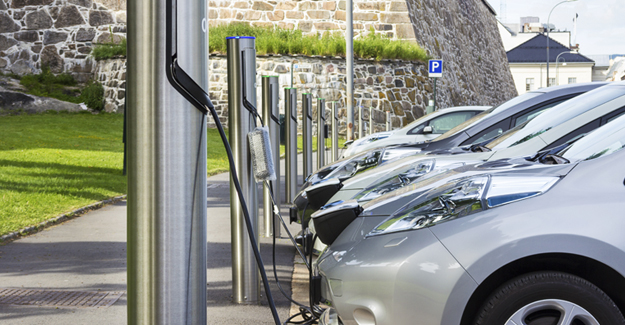Electric car drivers can ‘fill up’ at most motorway service stations
Seventy service stations on England’s motorway network now have electric vehicle charge points.
This equates to 72% of the 97 total.
Of the 165 individual charge points, 92% are rapid, allowing batteries to be almost fully replenished in around 30 minutes.
RAC Foundation analysis of data from the publicly available, government established, National Charge Point Registry shows that an electric vehicle driver will now be no more than 20 miles from a service station charge point on 98% (1,831 miles out of 1,859 miles) of the motorway system in England.
When the analysis is broadened out to the whole of the Strategic Road Network managed by Highways England – not just motorways but also major A roads – then 82% (3,845 miles out of 4,668 miles) of the system is within 20 miles of a charge point.
The roll out of the charging infrastructure means that Highways England are getting close to the £15 million promise made in the 2014 Autumn Statement that electric car drivers would never be “more than 20 miles from a charge point on the Strategic Road Network.”
The RAC Foundation analysis has not included charge points in locations other than on strategic roads.
The table below shows the charge point availability not just for England’s strategic roads but also those in Scotland and Wales.
|
|
Motorways |
Whole strategic road network |
||
|
|
Total length of road |
% of network within 20 miles of charge point |
Total length of road |
% of network within 20 miles of charge point |
|
England |
1,859 |
98% |
4,668 |
82% |
|
Scotland |
270 |
98% |
1,963 |
28% |
|
Wales |
83 |
100% |
1,044 |
45% |
|
GB TOTAL |
2,212 |
98% |
7,675 |
63% |
Steve Gooding, director of the RAC Foundation, said:
“Electric car drivers might still struggle to drive from Land’s End to John o’ Groats but they can now travel from Southampton to Perth in a relatively straight line and be confident of being able to ‘fill up’ along the way.
“The growing charge point network is good news but there are important caveats.
“Though many of the charge points are rapid, it will still take at least 20 minutes to fully charge a battery, which is fine if you’re first in line but could be a challenge if the hoped-for take up of electric cars materialises and you’re stuck at the back of a long queue.
“Drivers need to know the charge point they intend to use is actually working. Previous research by the RAC Foundation, suggested that at any one time a third of charge points in London were out of action.”
There are currently just over 20,000 battery-only vehicles licensed in the UK.
Where a service station is to be found on both sides of a carriageway it has been counted as a single station.
ENDS
Contact:
Philip Gomm – Head of External Communications – RAC Foundation
[email protected] | 020 7747 3445 | 07711 776448 | 020 7389 0601 (ISDN)
Notes to editors:
The RAC Foundation is a transport policy and research organisation that explores the economic, mobility, safety and environmental issues relating to roads and their users.
The Foundation publishes independent and authoritative research with which it promotes informed debate and advocates policy in the interest of the responsible motorist. All the Foundation’s work is available at: www.racfoundation.org
In January 2015 the RAC Foundation published an analysis of the use and availability of charge points in London. http://www.racfoundation.org/media-centre/electric-charge-point-use-london


